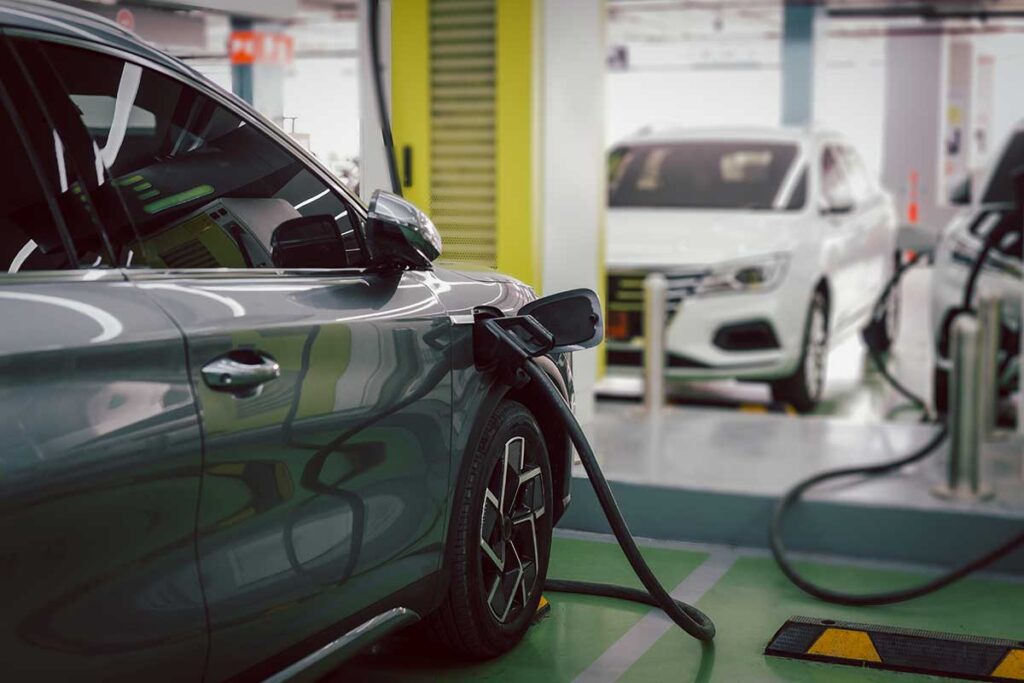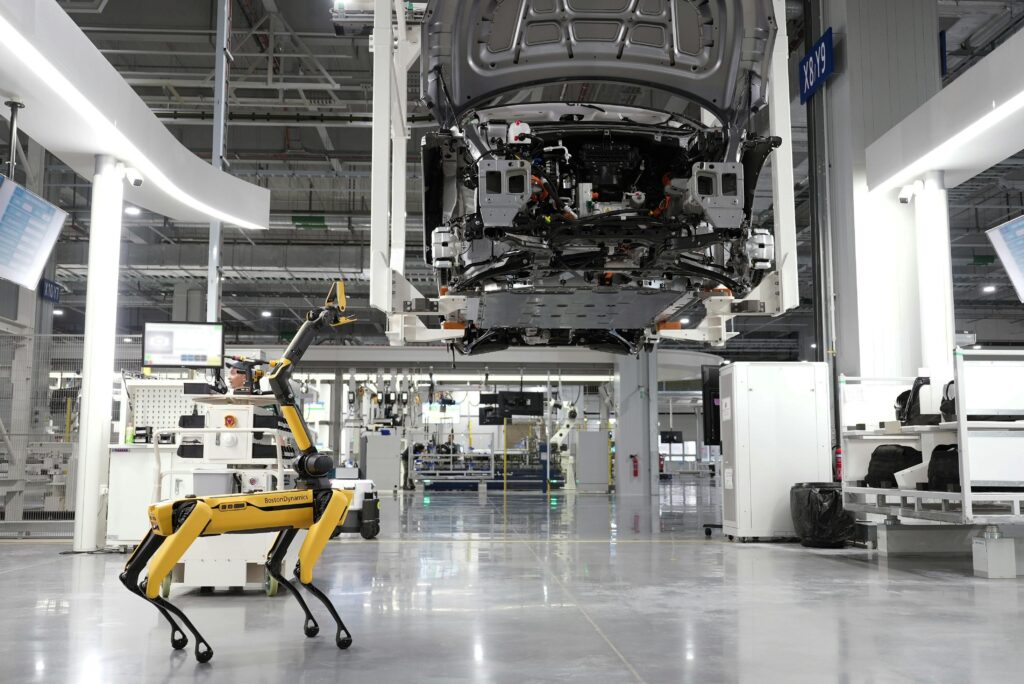Table of Contents
Electric Car Prices Kept High in Europe by Lack of Battery Production

Written by: Briain Kelly
Published: April 29, 2024
Last updated: October 9, 2025
Reading time: 2 mins
The cost of batteries in Europe needs to fall drastically in order to make electric cars more affordable in a struggling market.
A report by the European Court of Auditors has said that the transport industry is struggling to cut greenhouse gas emissions, and that electric vehicles are the only viable alternative to conventional fossil fuel cars.
The ECA has said that while the EU has made progress on reducing greenhouse emissions, this has not been true in the transport sector, which accounts for 25% of all of Europe’s GHG emissions.
Passenger cars account for half of all emissions from the transport sector, and in the past 12 years, there has been little to no decrease in real world emissions from fossil fuel cars.
Although emissions standards were tightened in 2010, in the years since then the average car weight has increased by 10%, requiring engines to become around 25% more powerful to compensate.
Auditors looking at plug-in-hybrid cars, which were hyped as a transition vehicle between conventional cars and electric cars, are not balm it was hoped they would be.
Despite being classified as a ‘low emissions’ vehicle type, it was found that real world emissions were on average 250% higher than in laboratory testing.
Alternate fuel sources such as hydrogen or biofuels are simply not viable alternatives to conventional cars, either economically or environmentally, for a variety of reasons.
This leaves fully electric cars as the only option to curb greenhouse gas emissions from the transport sector, but Europe is at risk of not meeting targets due to a lack of infrastructure in the EV industry.

EV Battery Production Shortage
Electric Cars are likely the only option to decarbonise the transport industry due to no improvement from conventional vehicles. However, the sector has been struggling in Europe due to the battery industry struggling.
Europe’s capacity for the production of electric cars could suffer compared with global competitors due to the battery industry lagging behind here.
The auditors found that less than 10% of the world’s EV battery production capacity is located in Europe, and that the bulk of what is here comes from non-domestic companies.
This lack of capacity means that the cost of electric car batteries remains much higher than expected, costing roughly €15,000 on average.

Part of what is holding back the growth of Europe’s domestic industry has been the need to import raw materials for batteries from countries where the EU does not have adequate trade deals.
Australia is the source of 87% of its raw lithium imports, 80% of manganese comes from South Africa and Gabon, the Democratic Republic of Congo delivers 68% of raw cobalt imports, and 40% of raw natural graphite imports come from China.
This has a significant impact on the overall cost of electric cars, with the majority of EVs costing more than €30,000. This is substantial price tag, even with government subsidies taking some of the burden.
This could price a significant portion of the market out of purchasing European-made electric cars.
Even if they are able to find cheaper alternatives from companies and countries outside of Europe, that would still come at the expense of the domestic car industry, and the three million people it employs.

Electric Car Sales Slump
In Ireland, there were 2,009 new electric cars registered in March, down 41.1% compared to the 3,412 registrations in March 2023.
Up to the end of March this year, 7,971 new electric cars have been registered, a 14.3% decrease compared to the same period in 2023.
Europe is also falling short of the required electric vehicle charging infrastructure required to allow them to truly flourish.
The number of public charging stations in the EU is not nearly approaching the target of 1 million by 2025, with availability also varying greatly between countries.
Finally, auditors highlighted that, in the absence of real-time information and a harmonised payment system, travelling across Europe in an electric car is still far from straightforward.
Electric Car Prices Kept High in Europe by Lack of Battery Production
Published: April 29, 2024
Last updated: October 9, 2025

Written by: Briain Kelly
Reading time: 2mins
The cost of batteries in Europe needs to fall drastically in order to make electric cars more affordable in a struggling market.
A report by the European Court of Auditors has said that the transport industry is struggling to cut greenhouse gas emissions, and that electric vehicles are the only viable alternative to conventional fossil fuel cars.
The ECA has said that while the EU has made progress on reducing greenhouse emissions, this has not been true in the transport sector, which accounts for 25% of all of Europe’s GHG emissions.
Passenger cars account for half of all emissions from the transport sector, and in the past 12 years, there has been little to no decrease in real world emissions from fossil fuel cars.
Although emissions standards were tightened in 2010, in the years since then the average car weight has increased by 10%, requiring engines to become around 25% more powerful to compensate.
Auditors looking at plug-in-hybrid cars, which were hyped as a transition vehicle between conventional cars and electric cars, are not balm it was hoped they would be.
Despite being classified as a ‘low emissions’ vehicle type, it was found that real world emissions were on average 250% higher than in laboratory testing.
Alternate fuel sources such as hydrogen or biofuels are simply not viable alternatives to conventional cars, either economically or environmentally, for a variety of reasons.
This leaves fully electric cars as the only option to curb greenhouse gas emissions from the transport sector, but Europe is at risk of not meeting targets due to a lack of infrastructure in the EV industry.

EV Battery Production Shortage
Electric Cars are likely the only option to decarbonise the transport industry due to no improvement from conventional vehicles. However, the sector has been struggling in Europe due to the battery industry struggling.
Europe’s capacity for the production of electric cars could suffer compared with global competitors due to the battery industry lagging behind here.
The auditors found that less than 10% of the world’s EV battery production capacity is located in Europe, and that the bulk of what is here comes from non-domestic companies.
This lack of capacity means that the cost of electric car batteries remains much higher than expected, costing roughly €15,000 on average.

Part of what is holding back the growth of Europe’s domestic industry has been the need to import raw materials for batteries from countries where the EU does not have adequate trade deals.
Australia is the source of 87% of its raw lithium imports, 80% of manganese comes from South Africa and Gabon, the Democratic Republic of Congo delivers 68% of raw cobalt imports, and 40% of raw natural graphite imports come from China.
This has a significant impact on the overall cost of electric cars, with the majority of EVs costing more than €30,000. This is substantial price tag, even with government subsidies taking some of the burden.
This could price a significant portion of the market out of purchasing European-made electric cars.
Even if they are able to find cheaper alternatives from companies and countries outside of Europe, that would still come at the expense of the domestic car industry, and the three million people it employs.

Electric Car Sales Slump
In Ireland, there were 2,009 new electric cars registered in March, down 41.1% compared to the 3,412 registrations in March 2023.
Up to the end of March this year, 7,971 new electric cars have been registered, a 14.3% decrease compared to the same period in 2023.
Europe is also falling short of the required electric vehicle charging infrastructure required to allow them to truly flourish.
The number of public charging stations in the EU is not nearly approaching the target of 1 million by 2025, with availability also varying greatly between countries.
Finally, auditors highlighted that, in the absence of real-time information and a harmonised payment system, travelling across Europe in an electric car is still far from straightforward.
Solar Energy Saves Households Thousands in Electricity Costs
Take our 2-minute questionnaire and find affordable solar options to suit your budget and lifestyle.



